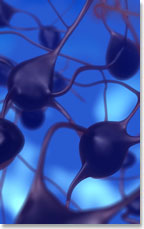 One of the little known fields that addresses nutrition and the treatment of diseases and disorders like addiction treatment is orthomolecular psychiatry. The theory behind orthomolecular psychiatry is that disorders, like addiction, are due to brain chemical deficiencies.
One of the little known fields that addresses nutrition and the treatment of diseases and disorders like addiction treatment is orthomolecular psychiatry. The theory behind orthomolecular psychiatry is that disorders, like addiction, are due to brain chemical deficiencies.
There are even addiction treatment centers that base their programs on this premise. One such center, the National Organization for Recovering Alcoholics (NORA) in Pagosa Springs, Colorado, uses a ten-day intravenous drip of all natural amino acids prescribed by a doctor and administered by a registered nurse. Each IV drip lasts around five hours a day.
Nutritional supplements such as herbs, amino acids, vitamins and other nutrients restore the proper biochemical balance in the brain. These supplements are specified, according to your addiction, in the book The Proven Nutritional Supplement Program That Can Set You Free by Charles Gant and Greg Lewis. Gant has helped over 7,500 patients with his innovative nutritional program designed to help people addicted to drugs, alcohol, nicotine, or pain medication.
In addition to adding supplements, eliminating certain substances such as sugars and simple starches and increasing protein intake can help to rebalance brain chemistry. Good nutrition and things like antioxidants can help heal damage done to the body caused by the depletion of nutrients during substance abuse.
There are potent natural substances, like herbs, amino acids, nutritional supplements and foods, that can significantly elevate mood, tame stress, and repair memory in ways that work in harmony with your body’s own chemistry. Rather than artificially changing the way you feel, these substances affect the brain’s neurotransmitters (things such as dopamine and serotonin) that are crucial to our ability to feel good, happy, relaxed, and energetic naturally.
Even if you’re already clean and sober, haven’t you considered weaning yourself off the chemical crutches that seem to rule your life?
Good nutrition is also important in the prevention of relapse. One helpful supplementation is the use of the amino acids that serve as the building blocks in the neurotransmitters of the brain, Studies have shown that these neurotransmitters, including epinephrine and norepinephrine, GABA, serotonin and dopamine, are closely tied to addiction behavior. With the addition of the appropriate amino acids, brain chemistry can be changed to help normalize and restore deficiencies in the neurotransmitters that spur cravings that can lead to addiction and relapse ending up in addiction treatment.